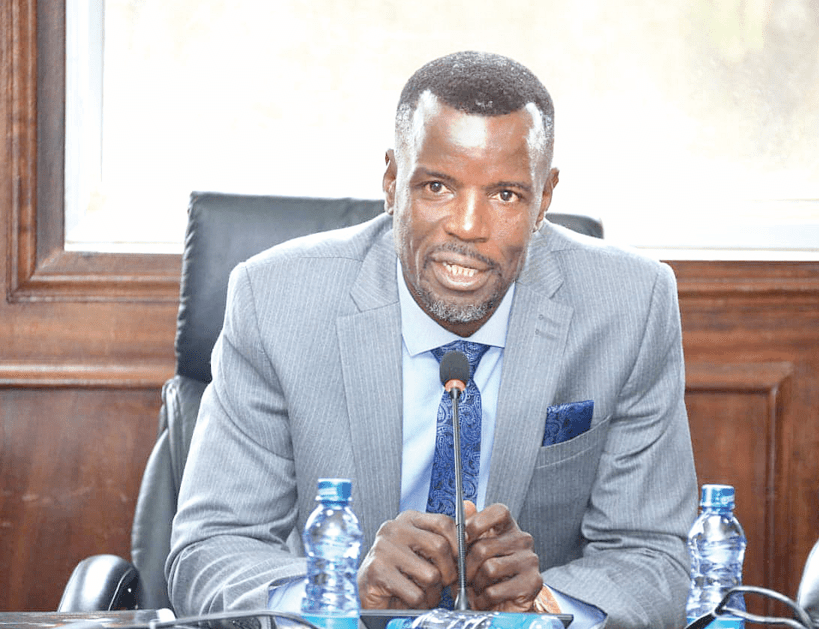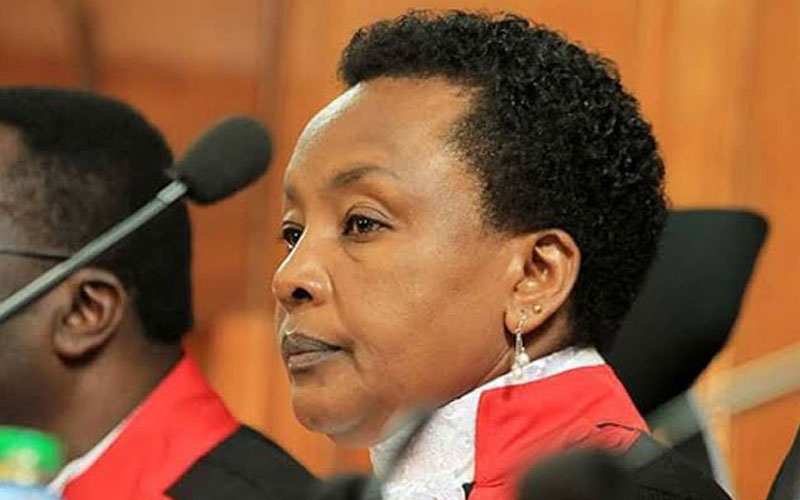DCI, Haji enjoined in Mwilu case
By Bernice Mbugua, October 8, 2020The High Court yesterday allowed the Director of Public Prosecutions (DPP) and the Directorate of Criminal Investigations (DCI) to be enjoined in a suit filed by Deputy Chief Justice Philomena Mwilu against the JSC disciplinary committee investigating her for gross misconduct.
Justice Weldon Korir yesterday directed the two to file and serve their submissions in the case within seven days.
The judge further extended orders stopping the Judicial Service Commission proceedings against her and directed the matter to be mentioned on November 17 to confirm compliance and fixing of a hearing date.
The DCJ did not want the two to be enjoined in the suit saying they did not qualify to be enjoined as respondents in the suit.
Lawyers’ argument
Mwilu through lawyers Nelson Havi, Julie Soweto and Jackson Awele had argued that the provisions that the DCI and DPP relied on did not support a joinder.
“If you look at the motion by the DCI, it refers to articles of the Constitution, sections of Civil Procedure Act and Civil Procedure Rules which are not the enabling provisions,” stated Havi in virtual proceedings.
He noted that there are four petitions before JSC against the DCJ and which have their foundation in criminal proceedings instituted on August 28, 2018 and quashed in 2019.
“The ODPP and the DCI were initiators of the quashed criminal proceedings and the actions of JSC whose actions as administrative body have been challenged in the petition,” Havi argued.
DPP and DCI however argued that since they are the ones who filed complaints against the DCJ, they will be directly affected by the outcome of her petition should they not be enjoined in the suit.
“The opposition by the petitioner should indicate the vital nature of the petition, why would the petitioner expend so much energy in refusing to join us in the petition,” argued special prosecution counsel Taib Ali Taib.
Choice of parties
DPP argued that the choice of parties by Mwilu in her application betrays one fact that she intends to personalise the matter as against some commissioners and ensure that the JSC is intimidated not to discharge its mandate under the Constitution.
“That this being the position taken by the petitioner it leaves no doubt that the petitioner does not wish to be heard by the Court of Appeal or even the JSC and she is bent on ensuring that her strategy of delaying the matter ad in finito is achieved regardless of the inconvenience that all other parties may suffer.” DPP had argued in court documents.
It is the prosecution’s argument that Mwilu was clearly bent on ensuring that the disciplinary case before the JSC never sees the light of day while she continues to enjoy the full benefits of her office, including presiding over disciplinary proceedings against her colleagues and junior staff at the Judiciary.
In her petition, Mwilu has only listed the JSC, two commissioners, Attorney General Kihara Kariuki and Law Society of Kenya representative Macharia Njeru as respondents in the suit.
More Articles

